Ninghan Chen
"Double vaccinated, 5G boosted!": Learning Attitudes towards COVID-19 Vaccination from Social Media
Jun 27, 2022


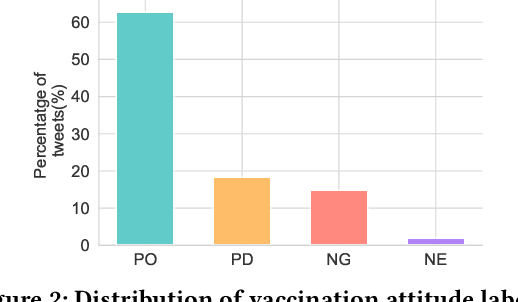
Abstract:To address the vaccine hesitancy which impairs the efforts of the COVID-19 vaccination campaign, it is imperative to understand public vaccination attitudes and timely grasp their changes. In spite of reliability and trustworthiness, conventional attitude collection based on surveys is time-consuming and expensive, and cannot follow the fast evolution of vaccination attitudes. We leverage the textual posts on social media to extract and track users' vaccination stances in near real time by proposing a deep learning framework. To address the impact of linguistic features such as sarcasm and irony commonly used in vaccine-related discourses, we integrate into the framework the recent posts of a user's social network neighbours to help detect the user's genuine attitude. Based on our annotated dataset from Twitter, the models instantiated from our framework can increase the performance of attitude extraction by up to 23% compared to state-of-the-art text-only models. Using this framework, we successfully validate the feasibility of using social media to track the evolution of vaccination attitudes in real life. We further show one practical use of our framework by validating the possibility to forecast a user's vaccine hesitancy changes with information perceived from social media.
A Multilingual Dataset of COVID-19 Vaccination Attitudes on Twitter
Jun 27, 2022
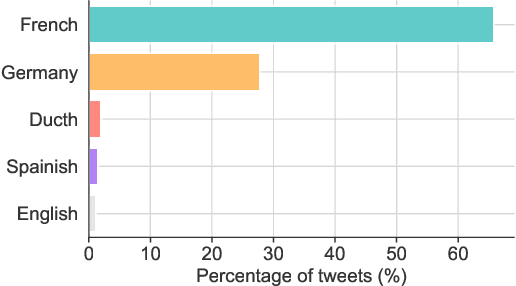

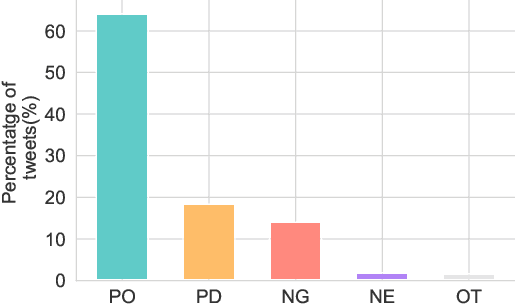
Abstract:Vaccine hesitancy is considered as one main cause of the stagnant uptake ratio of COVID-19 vaccines in Europe and the US where vaccines are sufficiently supplied. Fast and accurate grasp of public attitudes toward vaccination is critical to address vaccine hesitancy, and social media platforms have proved to be an effective source of public opinions. In this paper, we describe the collection and release of a dataset of tweets related to COVID-19 vaccines. This dataset consists of the IDs of 2,198,090 tweets collected from Western Europe, 17,934 of which are annotated with the originators' vaccination stances. Our annotation will facilitate using and developing data-driven models to extract vaccination attitudes from social media posts and thus further confirm the power of social media in public health surveillance. To lay the groundwork for future research, we not only perform statistical analysis and visualisation of our dataset, but also evaluate and compare the performance of established text-based benchmarks in vaccination stance extraction. We demonstrate one potential use of our data in practice in tracking the temporal changes of public COVID-19 vaccination attitudes.
An Exploratory Study of COVID-19 Information on Twitter in the Greater Region
Aug 12, 2020
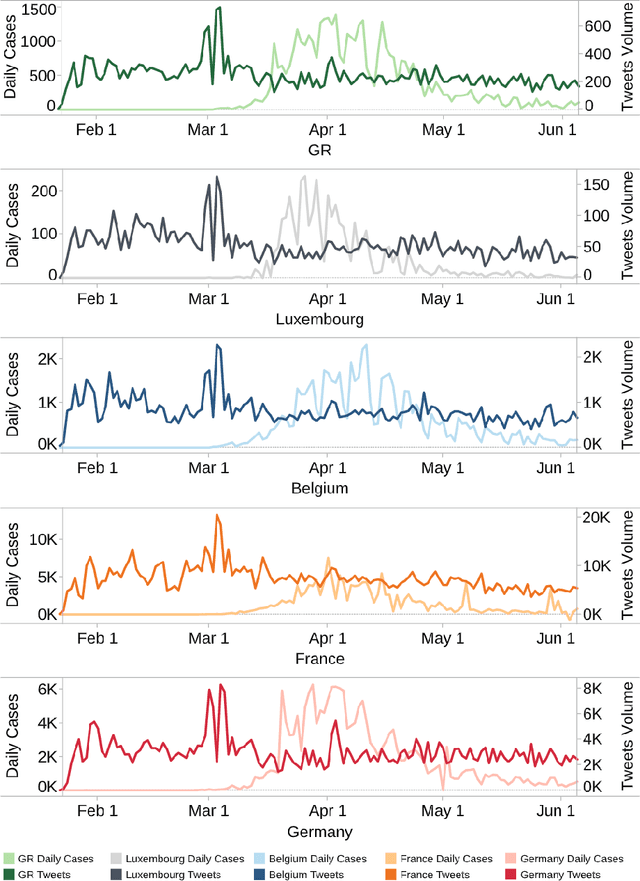
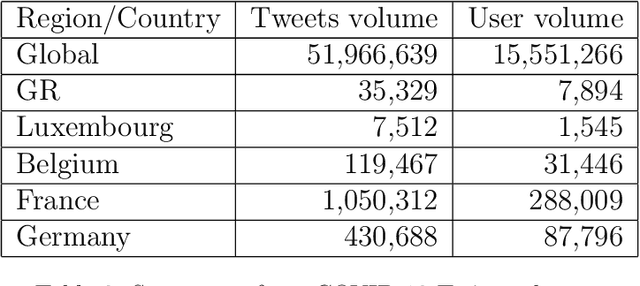

Abstract:The outbreak of the Coronavirus disease (COVID-19) leads to an outbreak of pandemic information in major online social networks (OSNs). In the constantly changing situation, OSNs are becoming a critical conduit for people in expressing opinions and seek up-to-the-minute information. Thus, social behaviour on OSNs may become a predictor or reflection of reality. This paper aims to study the social behaviour of the public in the Greater Region (GR) and related countries based on Twitter information with machine learning and representation learning methods. We find that tweets volume only can be a predictor of outbreaks in a particular period of the pandemic. Moreover, we map out the evolution of public behaviour in each country from 2020/01/22 to 2020/06/05, figuring out the main differences in public behaviour between GR and related countries. Finally, we conclude that tweets volume of anti-contiguous measures may affect the effeteness of the government policy.
 Add to Chrome
Add to Chrome Add to Firefox
Add to Firefox Add to Edge
Add to Edge